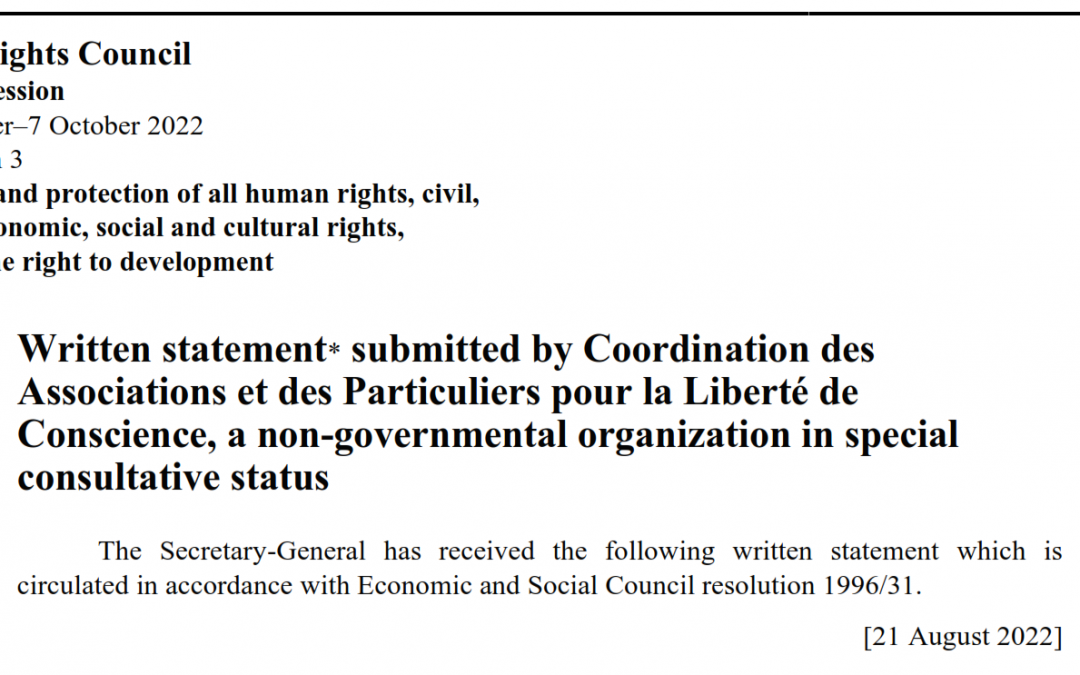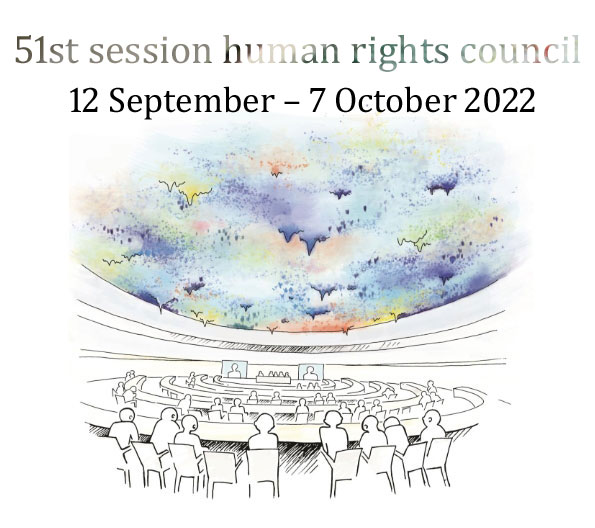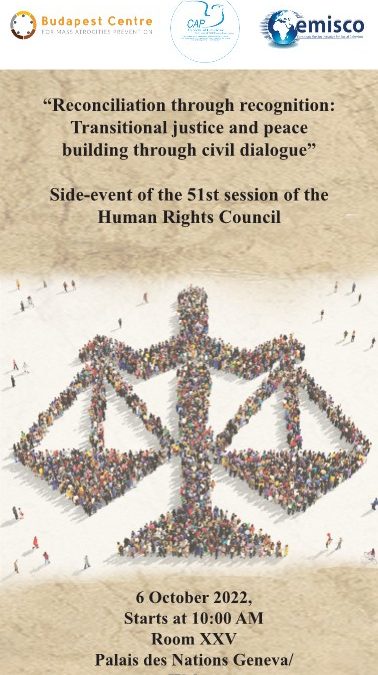
by CAP Liberté de Conscience | Oct 10, 2022 | HRC 51, news
A 34-year old PhD student sentenced to 34 years in prison and a 34-year travel ban afterwards, a cynical and cruel game with this number At mid-August 2022, Salma al-Shehab, a Saudi 34-year old PhD student from the University of Leeds, was sentenced under the kingdom’s counter-terrorism and cybercrime laws to a heavy penalty: 34 years in prison and a 34-year travel ban after her release for following and retweeting messages from Saudi women’s rights activists, including Loujain al-Hathloul ranked third in the “Top 100 Most Powerful Arab Women 2015” and the winner of the Vaclav Havel Human Rights Prize in 2020.

by CAP Liberté de Conscience | Oct 5, 2022 | HRC 51
Protection of universal human rights in conflict affected areas has always been the priority for the work of UN Human rights council. There is inseparable connection between protection of peace and security and human rights and human dignity. Both sustainable peace and human dignity can’t not be achieved but with Justice. The latter is a fundamental building block for the formers, thus it needs to be addressed at once. This linkage become even more important when the shadow of the fading conflict still dominates and hinder normalization efforts by the states engaged in post-conflict peacebuilding. The two-fold task presents a challenge but also provide opportunity to support transition from conflict to peace by applying the mechanism of transitional justice.1 One such important opportunity emerged in the critical region of South Caucuses with the effective transition of Armenian-Azerbaijani conflict since the parties signed Trilateral Statement in November 2020 which ended the war.

by CAP Liberté de Conscience | Oct 5, 2022 | CAP LC Event Coming, HRC 51
Peace and justice are inevitable part of any post-conflict reconciliation. It is therefore necessary to streamline efforts aimed at strengthening the linkage between them while ensuring broad participation of civil society to this aim. This would not only serve to bringing justice and broaden the rule of law, but would also help healing wounds thereby contributing to post-conflict peace- building and reconciliation processes through the multi-stakeholder approach.

by CAP Liberté de Conscience | Sep 12, 2022 | HRC 51
Civil society participation is a cornerstone of the Human Rights Council. Given continuing restrictions to civil society participation, including the Council’s adoption of efficiency measures to address the UN’s financial shortfalls; the COVID-19 pandemic2; and the ongoing Strategic Heritage Plan, we call on you to continue to ensure full participation of civil society and that civil society are fully consulted in the making of decisions that affect civil society participation and access to the Council. We are concerned that without such consultation, decisions on issues relating to participation and procedure will be taken without full consideration of all key stakeholders, to the detriment of the Council’s effectiveness.





